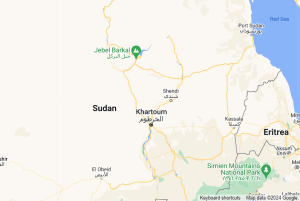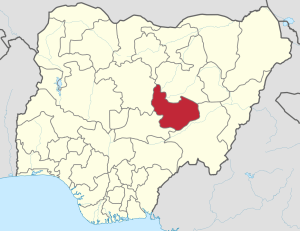JUBA, South Sudan
On Friday, April 12, the Rapid Support Forces (RSF) halted a church leader’s departure from Omdurman in Sudan. The Sudanese Church of Christ’s general secretary, Antar Abbas Abu Hidia, was temporarily incarcerated. He was en route to Shendi, a city 150 kilometers (93 miles) northeast of Khartoum, to attend a yearly religious gathering. Attorney Motawakil Ibrahim Kambil, who chairs the SCOC’s Advisory Board, reported that Rev. Hidia was caught leaving Omdurman.
The RSF, which has been fighting the Sudanese Armed Forces (SAF) since April 15, 2023, detained the pastor, incarcerated him in Khartoum’s Soba Prison, and demanded he pay a ransom for his release, sources said.
The RSF gave no reason for his detention. The Sudanese church condemned the incident, calling for his immediate release, and Hidia was released over the weekend, though no ransom was paid.
Hidia proceeded to Shendi to attend the meeting, said the Rev. Almin Musa, chairman of SCOC.
“Rev. Antar has been released, and he is now in Shendi,” Musa said.
Christians appear to have been targeted amid the military fighting, and a year after war broke out between the RSF and the SAF, there is no sign of resolution.
Fighting between the RSF and the SAF, which had shared military rule in Sudan following an October 2021 coup, has terrorized civilians in Khartoum and elsewhere, leaving more than 14,600 people dead and displacing an estimated 8 million others inside and outside the country.
Christian sites have been targeted since the conflict began.
The SAF’s Gen. Abdelfattah al-Burhan and his then-vice president, RSF leader Mohamed Hamdan Dagalo, were in power when civilian parties in March 2023 agreed on a framework to re-establish a democratic transition the next month. Still, disagreements over military structure torpedoed final approval.
Burhan sought to place the RSF—a paramilitary outfit with roots in the Janjaweed militias that had helped former strongman Omar al-Bashir put down rebels—under the regular army’s control within two years, while Dagolo would accept integration within ten years at the earliest. The conflict burst into military fighting on April 15, 2023.
Both military leaders have Islamist backgrounds while trying to portray themselves to the international community as pro-democracy advocates of religious freedom.
In Open Doors’ 2024 World Watch List of the countries where it is most challenging to be a Christian, Sudan was ranked No. 8, up from No. 10 the previous year, as attacks by non-state actors continued and religious freedom reforms at the national level were not enacted locally.
Sudan had dropped out of the top 10 for the first time in six years when it first ranked No. 13 in the 2021 World Watch List.
Following two years of advances in religious freedom in Sudan after the end of the Islamist dictatorship under Bashir in 2019, the specter of state-sponsored persecution returned with the military coup of Oct. 25, 2021.
After Bashir was ousted from 30 years of power in April 2019, the transitional civilian-military government managed to undo some Sharia (Islamic law) provisions. It outlawed the labeling of any religious group as “infidels” and thus effectively rescinded apostasy laws that made leaving Islam punishable by death.
With the Oct. 25, 2021, coup, Christians in Sudan feared the return of the most repressive and harsh aspects of Islamic law. Abdalla Hamdok, who had led a transitional government as prime minister starting in September 2019, was detained under house arrest for nearly a month before he was released and reinstated in a tenuous power-sharing agreement in November 2021.
Hamdock had been faced with rooting out longstanding corruption and an Islamist “deep state” from Bashir’s regime – the same deep state that is suspected of rooting out the transitional government in the Oct. 25, 2021 coup.
The U.S. State Department removed Sudan from the list of countries of particular concern (CPC) that engage in or tolerate “systematic, ongoing and egregious violations of religious freedom” in 2019 and upgraded it to a watch list. Sudan had previously been designated a CPC from 1999 to 2018.
In December 2020, the State Department removed Sudan from its Special Watch List.
The Christian population in Sudan is 4.5%, estimated at 2 million out of over 43 million people.




